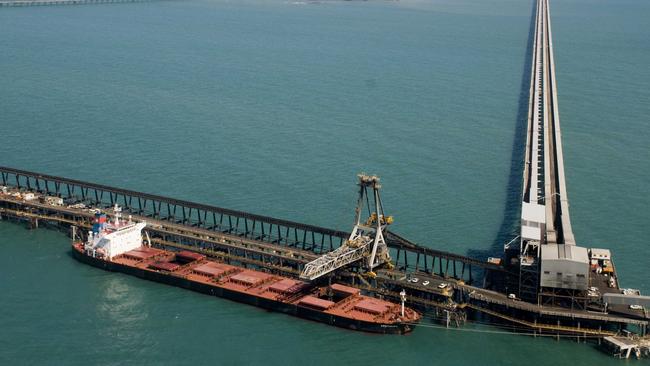
As deal-makers in the infrastructure space start getting their heads around the assets on offer in 2020, one question is what sort of buyers will line up for the $2bn-plus Dalrymple Bay Coal terminal in Queensland.
Brookfield is selling the terminal through HSBC and Bank of America.
It comes at a time that infrastructure assets are in hot demand and investors in the space have serious money to put to work.
However, the fact that it is exposed to coal could make any transaction tricky.
The port is one of the state’s major metallurgical coal export facilities, but the understanding is that about 30 per cent of its exports involve thermal coal, which is out of favour with some large global investors.
This may limit the buyer pool, with a company less subject to ethical investor scrutiny in a better position to buy the asset.
One way around this problem could be for an acquirer to wind down the exposure to thermal coal exports over time, where the facility becomes an exporter of metallurgical coal only.
However, this may limit the earnings growth prospects for any buyer.
Indicative bids for the asset are due on February 7, with an investor road show now getting under way.
Brookfield secured control of the asset during the financial crisis in 2009 when it embarked on a $1.8bn recapitalisation of Babcock and Brown Infrastructure, which essentially comprised the DBCT.
The move to offload the assets follows Brookfield’s sale of its half-share in Genesee and Wyoming Australia to joint venture partner MIRA for about $1bn.
Still, despite the caution around thermal coal, buyers have paid up for assets in the space in the recent past.
More than a year ago, Chinese-backed Yancoal, with Glencore, made a $US3.5bn purchase of Rio Tinto’s Coal & Allied thermal coal operations in the Hunter Valley.
Glencore also last year bought Rio’s Hail Creek coking coal mine in Queensland for $US1.7bn.
However, since that time Glencore has imposed a production cap on thermal coal.
The upcoming sale of BHP Billiton’s $4bn-plus Mt Arthur coal mining asset will also be an interesting test.
Elsewhere, expectations continue to mount that Morgan Stanley will win the role advising the Victorian government on the sale of its Motor Registry unit, which could be worth more than $2bn.
Investec had been competing for the role but is now understood to be out of the race, while accounting firm KPMG already has a mandate.
The likelihood is that the government could be keen to see the scoping study finished by the beginning of next year, with a decision made on a sale ahead of the state budget around May or June.
VicRoads, as it is known, handles all of the state’s motor vehicle registrations, which helps to fund critical roading infrastructure.
Australian funds, including IFM, would be logical parties to line up for the asset should it come up for sale.




To join the conversation, please log in. Don't have an account? Register
Join the conversation, you are commenting as Logout